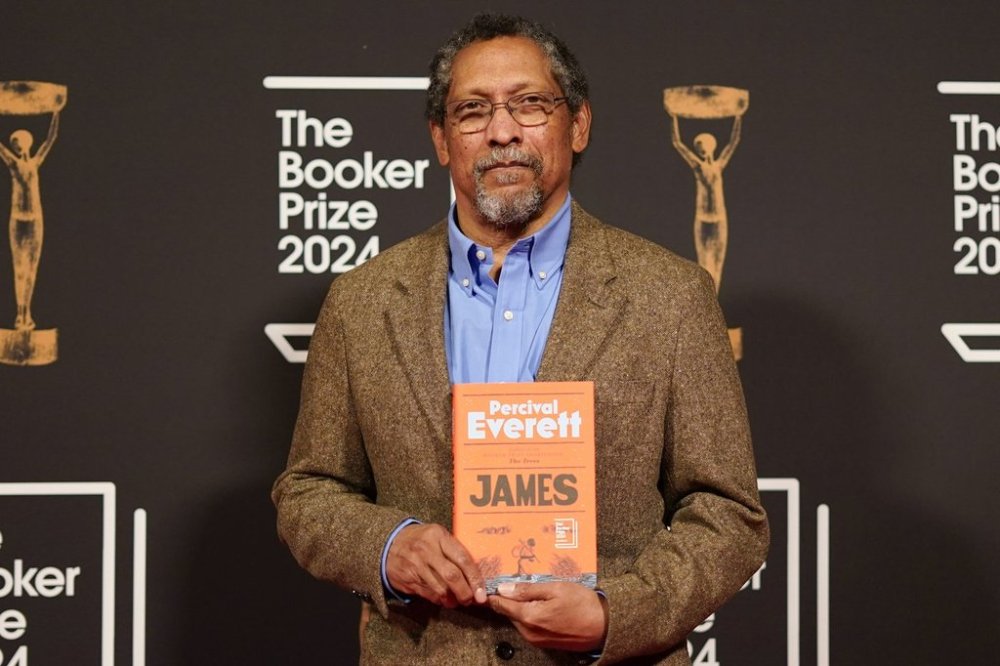Percival Everett’s ‘James’ awarded Carnegie Medal for fiction
Advertisement
Read this article for free:
or
Already have an account? Log in here »
We need your support!
Local journalism needs your support!
As we navigate through unprecedented times, our journalists are working harder than ever to bring you the latest local updates to keep you safe and informed.
Now, more than ever, we need your support.
Starting at $15.99 plus taxes every four weeks you can access your Brandon Sun online and full access to all content as it appears on our website.
Subscribe Nowor call circulation directly at (204) 727-0527.
Your pledge helps to ensure we provide the news that matters most to your community!
To continue reading, please subscribe:
Add Brandon Sun access to your Free Press subscription for only an additional
$1 for the first 4 weeks*
*Your next subscription payment will increase by $1.00 and you will be charged $20.00 plus GST for four weeks. After four weeks, your payment will increase to $24.00 plus GST every four weeks.
Read unlimited articles for free today:
or
Already have an account? Log in here »
Hey there, time traveller!
This article was published 26/01/2025 (274 days ago), so information in it may no longer be current.
NEW YORK (AP) — For author Percival Everett, libraries have long been a source of knowledge and discovery and pleasure, even of the forbidden kind.
“I remember making friends at age 13 with the librarian at the University of South Carolina, and she used to let me go through the stacks when I wasn’t supposed to,” Everett, who spent part of his childhood in Columbia, said during a telephone interview Sunday.
“One of the wonderful things about libraries is that when you’re looking for one book, it’s surrounded by other books that may not be connected to it. That’s what you get (online) with links, but (in libraries) no one’s decided what the links are.”

Everett’s latest honor comes from the country’s public libraries. On Sunday, the American Library Association announced that Everett’s “James” was this year’s winner of the Carnegie Medal for Excellence in Fiction, which includes a $5,000 cash award. Kevin Fedarko’s “A Walk in the Park: The True Story of a Spectacular Misadventure in the Grand Canyon” was chosen for nonfiction.
Everett’s acclaimed reworking of Mark Twain’s “The Adventures of Huckleberry Finn” from the perspective of Jim, Huck Finn’s enslaved companion, has already received the National Book Award and the Kirkus Prize and is a finalist for a National Book Critics Circle award. “James” has even topped The New York Times fiction hardcover list, a rare feat in recent years for a literary work that wasn’t a major book club pick or movie tie-in.
“Percival Everett has written a modern masterpiece, a beautiful and important work that offers a fresh perspective from the eyes of a classic character,” Allison Escoto, chair of the award’s selection committee, said in a statement. “Kevin Fedarko’s unforgettable journey through the otherworldly depths of the Grand Canyon shows us the triumphs and pitfalls of exploration and illuminates the many vital lessons we can all learn from our precious natural world.”
Fedarko is a former Time magazine correspondent whose work also has appeared in The New York Times and Esquire. A Pittsburgh native fascinated by distant places, Fedarko has a long history with libraries — Carnegie libraries. He remembers visiting two while growing up, notably one in the suburb of Oakmont near the hairdressing salon his parents ran. He would read biographies of historical figures from George Washington to Daniel Boone, and otherwise think of libraries as “important threads running through his life,” windows to a “wider world.”
Now a resident Flagstaff, Arizona, Fedarko says that he relied in part on the library at the nearby Northern Arizona University campus for both “A Walk in the Park” and its predecessor, also about the Grand Canyon, “The Emerald Mile.”
“The library has an important and unique collection about the Grand Canyon, and it’s the backbone of the kind of history that helps form the framework of both books,” he says. “Neither of them could have been done without the library.”
Previous winners of the medals, established in 2012 with a grant from the Carnegie Corporation of New York, includes Donna Tartt’s “The Goldfinch,” Colson Whitehead’s “The Underground Railroad” and Doris Kearns Goodwin’s “The Bully Pulpit.”
This year’s finalists besides “James” in the fiction category were Jiaming Tang’s “Cinema Love” and Kavin Akbar’s ”Martyr!”
Adam Higginbotham’s “Challenger: A True Story of Heroism and Disaster on the Edge of Space” and Emily Nussbaum’s “Cue the Sun! The Invention of Reality TV” were the nonfiction runners-up.
All three fiction nominees were published by Penguin Random House and all three nonfiction finalists by Simon & Schuster.
